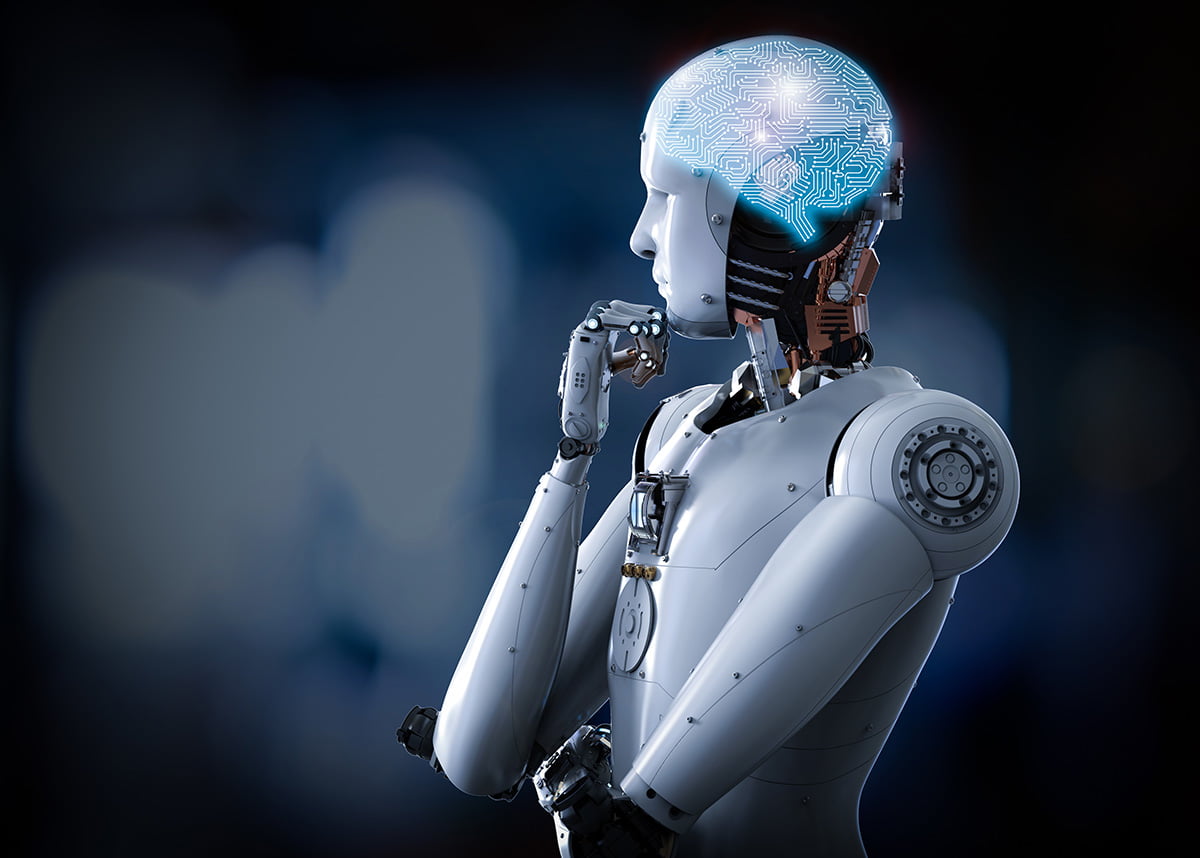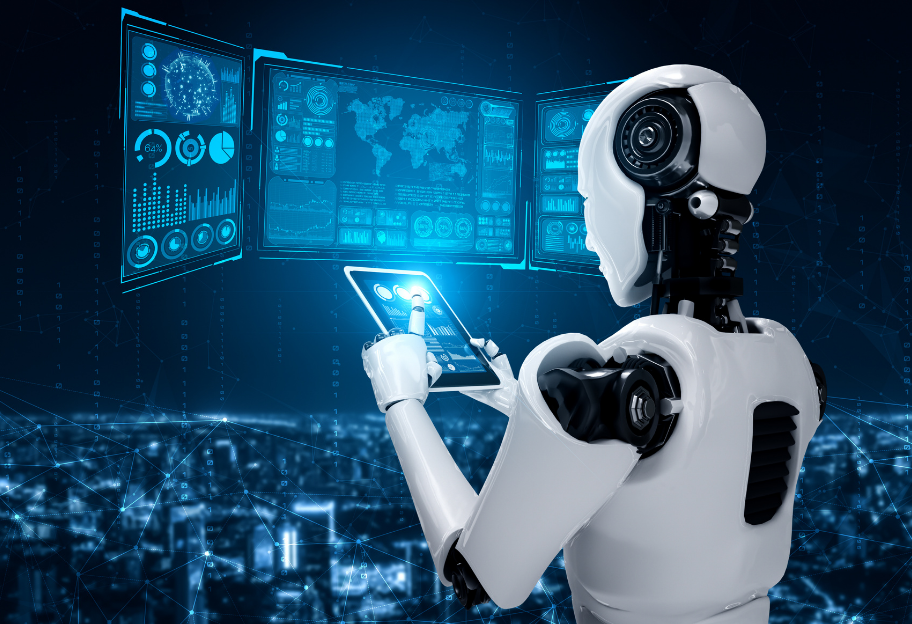Artificial Intelligence (AI) technology has rapidly evolved over the past few decades, revolutionizing various aspects of our lives. In this 1000-word essay, I will discuss the history of AI, its current state, and its potential future, while also touching upon the significant number of daily users and visitors who interact with AI technologies.
The Past: The roots of AI can be traced back to ancient history, with myths and stories featuring mechanical beings and automata. However, modern AI as we know it began to take shape in the mid-20th century. In the 1950s and 1960s, pioneers like Alan Turing and John McCarthy laid the theoretical groundwork for AI, while early computer programs attempted to simulate human thought processes. These were the beginnings of AI technology.
In the following decades, AI went through periods of optimism and skepticism, with early successes in rule-based expert systems followed by an “AI winter” in the 1970s and 80s, where funding and interest in AI research waned. However, progress resumed in the 1990s and 2000s, driven by advances in machine learning and the availability of large datasets.
The Present: Today, AI technology is pervasive in our daily lives. From virtual assistants like Siri and Alexa to recommendation systems on platforms like Netflix and Amazon, AI has become an integral part of our digital existence. AI powers self-driving cars, predicts disease outbreaks, and helps businesses optimize operations. It analyzes vast amounts of data, enabling better decision-making in healthcare, finance, and other sectors.
Machine learning, a subset of AI, has made remarkable strides. Deep learning techniques, particularly neural networks, have led to breakthroughs in computer vision, natural language processing, and speech recognition. AI-powered chatbots provide customer support, and AI-driven algorithms personalize our online experiences.
One of the most prominent AI technologies in recent years is natural language processing, which allows computers to understand and generate human language. This has resulted in the development of chatbots and virtual assistants that are capable of having meaningful conversations with users. Companies are using AI to automate customer support, provide personalized recommendations, and even assist in medical diagnoses.
AI’s influence isn’t limited to consumer applications. Industries like healthcare and finance rely on AI for tasks like medical image analysis, fraud detection, and risk assessment. In the field of autonomous vehicles, AI plays a critical role in enabling self-driving cars to navigate safely.
AI’s presence in daily life extends to social media, where recommendation algorithms use machine learning to curate content tailored to individual users’ interests. These algorithms have been both praised for enhancing user experiences and criticized for potentially exacerbating filter bubbles and echo chambers.
The Future: The future of AI is both exciting and challenging. As technology continues to advance, AI will likely become even more deeply integrated into our lives. Here are some key areas where we can expect AI to make a significant impact:
- Healthcare: AI will continue to transform healthcare, aiding in early disease detection, drug discovery, and personalized treatment plans. Wearable devices and AI-powered apps will monitor our health, and robots may assist in surgeries.
- Education: AI-driven personalized learning platforms will adapt to students’ individual needs, making education more efficient and effective. Virtual tutors and smart classrooms will become commonplace.
- Transportation: Self-driving cars and autonomous drones will become more prevalent, reducing accidents and increasing efficiency in the transportation sector.
- Environment: AI can help monitor and address environmental challenges such as climate change, deforestation, and wildlife conservation through data analysis and predictive modeling.
- Economy: AI will revolutionize the workforce, automating routine tasks and enhancing productivity. It will also create new job opportunities in AI development and maintenance.
- Ethics and Regulation: As AI technologies become more powerful, ethical concerns will rise, such as privacy, bias, and control. Governments and organizations will need to establish robust regulations and standards to ensure the responsible development and use of AI.
- Quantum Computing: The intersection of AI and quantum computing holds immense potential for solving complex problems at a speed and scale unimaginable with classical computers.
Total Numbers of Visitors: It is difficult to provide an exact number of daily visitors who interact with AI technology due to the vast and varied applications of AI. However, it’s safe to say that AI touches the lives of billions of people every day. Here are some examples of AI-driven interactions that occur daily:
- Search Engines: Search engines like Google use AI algorithms to provide relevant search results to millions of users every day.
- Social Media: Platforms like Facebook, Instagram, and Twitter use AI to curate users’ feeds, show personalized ads, and filter content. These platforms collectively have billions of daily users.
- E-commerce: Websites like Amazon and eBay use AI for product recommendations, personalized shopping experiences, and fraud detection. Millions of users visit these sites daily.
- Smartphones: Virtual assistants like Siri, Google Assistant, and Alexa interact with users daily, providing information, setting reminders, and controlling smart devices.
- Healthcare: AI is used in medical diagnostics, and telehealth services, providing consultations to patients globally.
- Finance: AI-driven algorithms in banking and investment help users manage their finances and make investment decisions.
- Customer Support: Many companies use AI chatbots to handle customer inquiries, serving millions of users daily.
- Autonomous Vehicles: Self-driving cars and delivery robots interact with pedestrians and other road users daily, although this is still in the early stages of deployment.
While we can’t provide an exact number, it’s clear that AI has a vast and growing user base. As AI technology continues to advance, its daily impact on our lives will only become more pronounced, making it an integral part of the modern world. The potential for AI to shape our future is vast, and as society continues to grapple with the ethical and practical challenges it presents, responsible development and regulation will be paramount.




Leave a Reply